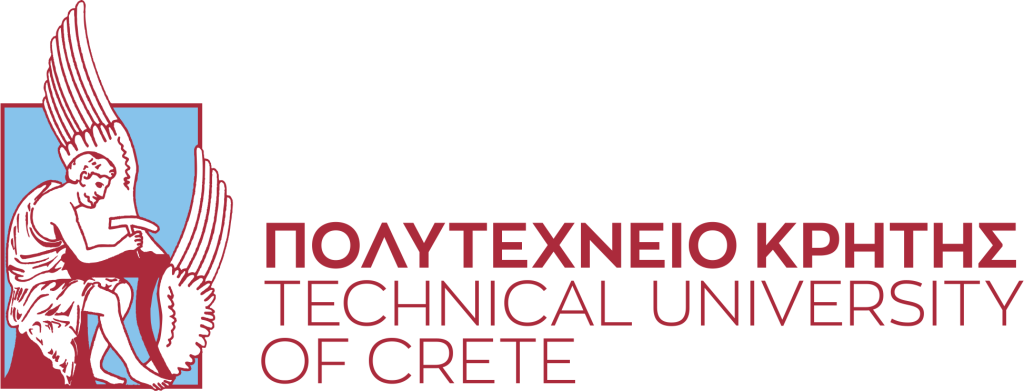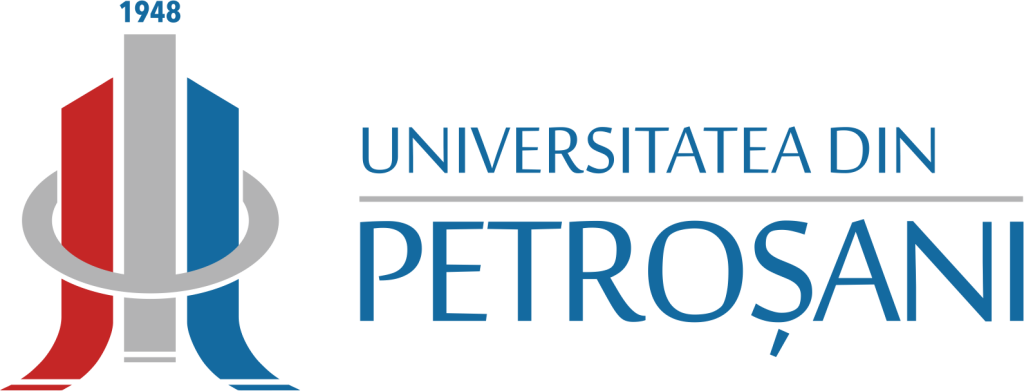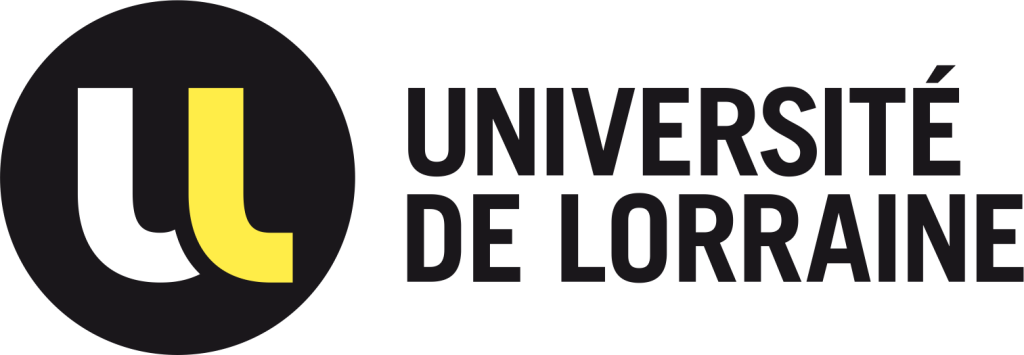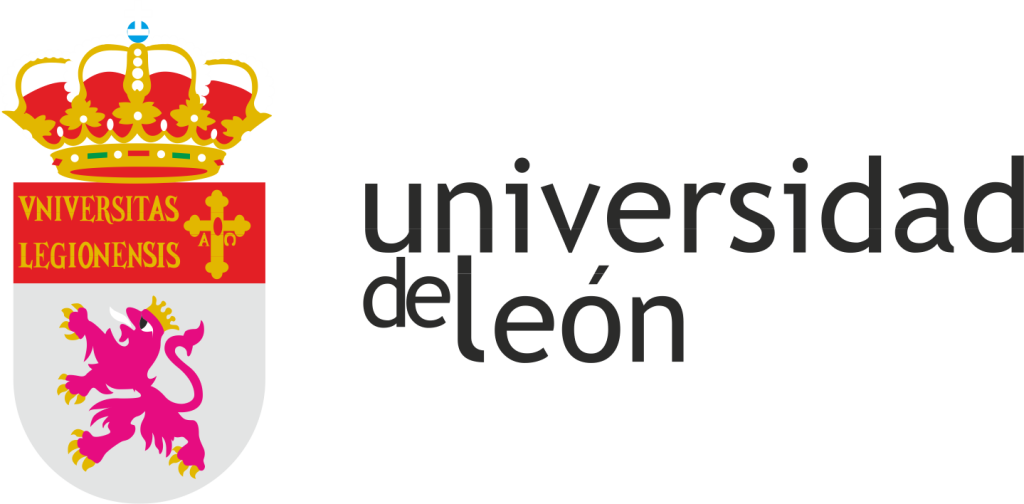Find your Study Programme
Interested in topics around Responsible Consumption and Production?
The EURECA-PRO alliance offers a wide range of undergraduate, postgraduate, doctoral, and joint programmes, alongside specialised courses and modules focused on Responsible Consumption and Production.
But that’s not all—students also gain insights into: European Values & Cultural Studies, Innovation & Entrepreneurship, and Transferable Skills for Global Impact.
Ready to make a difference? Start your educational journey now!

Joint MSc in Responsible Consumption and Production – Resources Supply
Entry university:
Montanuniversität Leoben
Mobility Options:
🇦🇹 Austria | 🇩🇪 Germany | 🇬🇷 Greece | 🇵🇱 Poland | 🇫🇷 France | 🇪🇸 Spain
Topic / Area
Just Societal, Multiscale Transition towards Sustainability and Responsibility
Starting
Winter Semester
Duration
4 Semesters
120 ECTS
Language
English (Primary), Chosed mobility (Secondary)
Website
www.eurecapro.eu/joint-study-programmes/#resources-supply
Joint MSc in Responsible Consumption and Production – European Business Strategy & Management
Entry university:
Montanuniversität Leoben
Mobility Options:
🇦🇹 Austria | 🇫🇷 France | 🇩🇪 Germany | 🇪🇸 Spain | 🇵🇱 Poland | 🇧🇪 Belgium
Topic / Area
Just Societal, Multiscale Transition towards Sustainability and Responsibility
Starting
Winter Semester
Duration
4 Semesters
120 ECTS
Language
English (Primary), Chosed mobility (Secondary)
Website
www.eurecapro.eu/joint-study-programmes/#business-strategy
Joint MSc in Responsible Consumption and Production – Materials
Entry university:
Montanuniversität Leoben
Mobility Options:
🇦🇹 Austria | 🇬🇷 Greece | 🇪🇸 Spain | 🇵🇱 Poland | 🇫🇷 France | 🇧🇪 Belgium
Topic / Area
Just Societal, Multiscale Transition towards Sustainability and Responsibility
Starting
Winter Semester
Duration
4 Semesters
120 ECTS
Language
English (Primary), Chosed mobility (Secondary)
Master of Sustainable Technologies of Energy Resources and Raw Materials
School of Mineral Resources Engineering
Technical University of Crete
Topic / Area
Circular economy and natural resources management for sustainable materials
Starting
Both Winter and Spring semesters
Duration
3 Semesters
90 ECTS
Language
English
Key Contact Person
S:
email
Local Website
www.mred.tuc.gr/…/sustainable-technologies-of-energy-resources-and-raw-materials
Master in Sustainable Engineering and Climate Change (SECC)
School of Chemical and Environmental Engineering
Technical University of Crete
Topic / Area
Circular economy and natural resources management for sustainable materials
Starting
Winter Semester
Duration
3 Semesters
90 ECTS
Language
English
Key Contact Person
S:
email
Local Website
www.secc.tuc.gr/en/home
Master of Space, Design and Culture
School of Architecture
Technical University of Crete
Topic / Area
Just societal, multiscale transition towars sustainability and responsibility
Starting
Winter Semester
Duration
4 Semesters
120 ECTS
Language
English, Greek
Key Contact Person
S:
email
Local Website
www.arch.tuc.gr/en/studies/postgraduate-studies/brief-history
Master in Product Design and Manufacturing (ProdDes)
School of Production Engineering and Management
Technical University of Crete
Topic / Area
Industry 4.0, including technology, organization and human perspectives towards responcible industry
Starting
Winter Semester
Duration
2 Semesters
75 ECTS
Language
Greek
Key Contact Person
S:
email
Local Website
www.prodes.pem.tuc.gr/el/archi
Master in Business Administration
School of Production Engineering and Management
Technical University of Crete
Topic / Area
Industry 4.0, including technology, organization and human perspectives towards responsible industry
Starting
Winter Semester
Duration
3 Semesters
90 ECTS
Language
Greek
Key Contact Person
S:
email
Local Website
www.mba.pem.tuc.gr/el/archi
Master of Science in Electrical and Computer Engineering (ECE)
School of Electrical and Computer Engineering
Technical University of Crete
Topic / Area
Energy transition and sustainable energy management
Starting
Winter Semester & Summer Semester
Duration
3 Semesters
90 ECTS
Language
English
Key Contact Person
S:
email
Local Website
www.ece.tuc.gr/…/msc-in-electrical-and-computer-engineering-1
Master of Science in Machine Learning and Data Science (MLDS)
School of Electrical and Computer Engineering
Technical University of Crete
Topic / Area
Energy transition and sustainable energy management
Starting
Winter Semester & Summer Semester
Duration
2 Semesters
60 ECTS
Language
Greek, English
Key Contact Person
S:
email
Local Website
www.mlds.tuc.gr/en/home
Responsible Consumption and Production
University of Petrosani
Topic / Area
Just societal, multiscale transition towars sustainability and responsibility
Starting
Winter semester
Duration
4 Semesters
120 ECTS
Language
English
Key Contact Person
S:
email
Local Website
www.upet.ro/educatie/programe-studii-master/rcp/
Automation and Electronic Systems / Bachelor
Silesian University of Technology
Topic / Area
Industry 4.0, including technology, organization and human perspectives towards responsible industry
Starting
Winter semester
Duration
7 Semesters
210 ECTS
Language
English
Key Contact Person
S:
email
Local Website
www.polsl.pl/rau/automation-and-electronic-systems-yaes/
Bachelor of Management of Sustainable Consumption
Specialisation in the Management and Production Engineering
Silesian University of Technology
Topic / Area
Circular economy and natural resources management for sustainable materials
Starting
Winter semester
Duration
7 Semesters
210 ECTS
Language
English
Key Contact Person
S:
email
Local Website
www.polsl.pl/roz3/kierunek-zarzadzanie-i-inzynieria-produkcji/
Industrial and Engineering Chemistry
Bachelor of Science
Silesian University of Technology
Topic / Area
Circular economy and natural resources management for sustainable materials
Starting
Winter semester
Duration
7 Semesters
210 ECTS
Language
English
Key Contact Person
S:
email
Local Website
www.polsl.pl/rch/en/kandydat-makro-1/
Logistics / Master of Science
Silesian University of Technology
Topic / Area
Industry 4.0, including technology, organization and human perspectives towards responsible industry
Starting
Summer semester
Duration
3 Semesters
90 ECTS
Language
English
Key Contact Person
S:
email
Local Website
www.polsl.pl/roz5/kl_logistics/
Cognitive Technologies / Master of Science
Silesian University of Technology
Topic / Area
Industry 4.0, including technology, organization and human perspectives towards responsible industry
Starting
Winter Semester
Duration
4 Semesters
240 ECTS
Language
English
Key Contact Person
S:
email
Local Website
www.polsl.pl/roz2/en/cognitive-technologies-2/
Master of Science in Management of Sustainable Consumption and Production
(specialisation in Management and Production Engineering)
Silesian University of Technology
Topic / Area
Circular economy and natural resources management for sustainable materials
Starting
Winter Semester & Summer Semester
Duration
3 Semesters
90 ECTS
Language
English
Key Contact Person
S:
email
Local Website
www.polsl.pl/roz3/kierunek-zarzadzanie-i-inzynieria-produkcji/
Responsible Production and Consumption (RPC) / Bachelor
TU Bergakademie Freiberg
Topic / Area
Just societal, multiscale transition towards sustainability and responsibility
Starting
Winter Semester & Summer Semester
Duration
7 Semesters
210 ECTS
Language
German, English
Key Contact Person
S:
email
Local Website
www.tu-freiberg.de/en/bachelor-responsible-production-and-consumption-rpc
Additive Manufacturing / Master
TU Bergakademie Freiberg
Topic / Area
Industry 4.0, including Technology, Organisation and Human Perspective towards Responsible Industry
Starting
Winter Semester & Summer Semester
Duration
3 Semesters
90 ECTS
Language
German
Key Contact Person
S:
email
Local Website
www.tu-freiberg.de/en/master-additive-manufacturing
Master of Energy Engineering Technology
Hasselt University
Topic / Area
Energy Transition and Sustainable Energy Management
Starting
Winter Semester
Duration
2 Semesters
60 ECTS
Language
English
Key Contact Person
S:
email
Local Website
www.uhasselt.be/en/study/programmes/master-of-energy-engineering-technology
Master of Interior Architecture – Adaptive Reuse
Hasselt University
Topic / Area
Circular Economy & Natural Resources management to Sustainable Materials
Starting
Winter Semester
Duration
2 Semesters
60 ECTS
Language
English
Key Contact Person
S:
email
Local Website
www.uhasselt.be/Master-of-interior-architecture-adaptive-reuse
Master in Sustainable Corporate Management (SCM) – IAE Nancy
Université de Lorraine
Topic / Area
Just Societal, Multiscale Transition towards Sustainability and Responsibility
Starting
Winter Semester & Summer Semester
Duration
4 Semesters
120 ECTS
Language
English
Key Contact Person
S:
email
Local Website
www.iae-nancy.univ-lorraine.fr/…/Master_SCM_2025.pdf
Master Forests and their Environment (FEN) – Faculty of Sciences and Technology (FST) Nancy
Université de Lorraine
Topic / Area
Energy transition and sustainable energy management
Starting
Winter Semester
Duration
2 Semesters
120 ECTS
Language
English, French
Key Contact Person
S:
email
Local Website
www.fst.univ-lorraine.fr/formations/master-agrosciences-environnement-territoires-paysage-foret/
GREENANO Master’s (Nanomaterials for Green and Digital Transitions)
Université de Lorraine
Topic / Area
Industry 4.0, including Technology, Organisation and Human Perspective towards Responsible Industry
Starting
Winter Semester
Duration
4 Semesters
120 ECTS
Language
English
Key Contact Person
S:
email
Local Website
www.greenanomaster.eu
International Master’s in Inclusive Education Sciences – MISEI
Université de Lorraine
Topic / Area
Industry 4.0, including Technology, Organisation and Human Perspective towards Responsible Industry
Starting
Winter Semester
Duration
4 Semesters
120 ECTS
Language
English
Key Contact Person
S:
email
Local Website
www.master-misei.com
Bachelor in Energy Engineering
Universidad de León
Topic / Area
Energy Transition and Sustainable Energy Management
Starting
Winter Semester
Duration
8 Semesters
240 ECTS
Language
Spanish
Key Contact Person
S:
email
Local Website
www.unileon.es/estudiantes/oferta-academica/grados/grado-en-ingenieria-de-la-energia
Double Bachelor in Electrical Engineering and Energy Engineering
Universidad de León
Topic / Area
Energy Transition and Sustainable Energy Management
Starting
Winter Semester
Duration
8 Semesters
240 ECTS
Language
Spanish
Key Contact Person
S:
email
Local Website
www.unileon.es/…/doble-grado-en-ingenieria-electrica-e-ingenieria-de-la-energia
Bachelor in Mining Engineering
Universidad de León
Topic / Area
Circular Economy & Natural Resources management to Sustainable Materials
Starting
Winter Semester
Duration
8 Semesters
240 ECTS
Language
Spanish
Key Contact Person
S:
email
Local Website
www.unileon.es/estudiantes/oferta-academica/grados/grado-en-ingenieria-minera
Bachelor’s Degree in Forest Engineering and the Natural Environment
Universidad de León
Topic / Area
Circular Economy & Natural Resources management to Sustainable Materials
Starting
Winter Semester
Duration
2 Semesters
240 ECTS
Language
Spanish
Key Contact Person
S:
email
Local Website
www.unileon.es/…/grado-en-ingenieria-forestal-y-del-medio-natural
Bachelor’s Degree in Geotechnologies and Surveying Engineering
Universidad de León
Topic / Area
Circular Economy & Natural Resources management to Sustainable Materials
Starting
Winter Semester
Duration
2 Semesters
240 ECTS
Language
Spanish
Key Contact Person
S:
email
Local Website
www.unileon.es/estudiantes/oferta-academica/grados/grado-en-geotecnologias-y-topografia
Double Bachelor’s Degree in Environmental Sciences and Forest Engineering and the Natural Environment
Universidad de León
Topic / Area
Circular Economy & Natural Resources management to Sustainable Materials
Starting
Winter Semester
Duration
2 Semesters
240 ECTS
Language
Spanish
Key Contact Person
S:
email
Local Website
www.unileon.es/…/doble-grado-en-ingenieria-forestal-y-del-medio-natural-y-ciencias-ambientales
Master in Geoinformatics for Natural Resource Management
Universidad de León
Topic / Area
Circular Economy & Natural Resources management to Sustainable Materials
Starting
Winter Semester
Duration
2 Semesters
60 ECTS
Language
Spanish
Key Contact Person
S:
email
Local Website
www.unileon.es/…/mu-geoinformatica-para-gestion-recursos-naturales
Master in Mining and Energy Resources Engineering
Universidad de León
Topic / Area
Energy transition and sustainable energy management
Starting
Winter Semester
Duration
3 Semesters
90 ECTS
Language
Spanish
Key Contact Person
S:
email
Local Website
www.unileon.es/estudiantes/…/mu-ingenieria-minera-y-de-la-energia
Master of Transportation Sciences
Hasselt University
Topic / Area
Energy transition and sustainable energy management
Starting
Winter Semester
Duration
4 Semesters
120 ECTS
Language
English
Key Contact Person
S:
email
Local Website
www.uhasselt.be/en/study/programmes/master-of-transportation-sciences
Erasmus Mundus Master in Pervasive Computing and Communications for Sustainable Development – Faculty of Sciences and Technology (FST)
Université de Lorraine
Topic / Area
Industry 4.0, including technology, organization and human perspectives towards responsible industry
Starting
Winter semester
Duration
4 Semesters
120 ECTS
Language
English
Key Contact Person
S:
email
Erasmus Mundus Master in European Forestry – Faculty of Sciences and Technology (FST-Nancy)
Université de Lorraine
Topic / Area
Energy transition and sustainable energy management
Starting
Winter semester
Duration
4 Semesters
120 ECTS
Language
English
Key Contact Person
S:
email
Local Website
www.formations.univ-lorraine.fr/fr/3380-master-conjoint-erasmus-mundus-european-forestry.html
Eramsus Mundus Master in Decentralized Smart Energy Systems – DENSYS – Faculty of Sciences and Technology (FST-Nancy)
Université de Lorraine
Topic / Area
Industry 4.0, including technology, organization and human perspectives towards responsible industry
Starting
Winter semester
Duration
4 Semesters
120 ECTS
Language
English
Key Contact Person
S:
email
Local Website
www.formations.univ-lorraine.fr/…/3604-master-erasmus-mundus-decentralized-smart-energy-systems-densys.html
Master in Advanced Materials Science and Engineering (AMASE) – EEIGM
Université de Lorraine
Topic / Area
Industry 4.0, including technology, organization and human perspectives towards responsible industry
Starting
Winter semester
Duration
4 Semesters
120 ECTS
Language
English
Key Contact Person
S:
email
Local Website
www.eusmat.net/international-studies/master/amase/
Eramsus Mundus Master in Georesources Engineering – EMerald (FST Nancy + ENSG Nancy)
Université de Lorraine
Topic / Area
Industry 4.0, including technology, organization and human perspectives towards responsible industry
Starting
Winter semester
Duration
4 Semesters
120 ECTS
Language
English
Key Contact Person
S:
email
Local Website
www.formations.univ-lorraine.fr/…/1503-master-stpe-pt-georesources-engineering.html
Master’s in Chemistry – Physical and Analytical Chemistry (Faculty of Sciences and Technology – FST Nancy)
Université de Lorraine
Topic / Area
Industry 4.0, including technology, organization and human perspectives towards responsible industry
Starting
Winter semester
Duration
4 Semesters
120 ECTS
Language
English
Key Contact Person
S:
email
Local Website
www.masterchimieul.wordpress.com/
Master in Computer Science – Information and Systems Security (SIS) (FST Nancy + UFR MIM)
Université de Lorraine
Topic / Area
Industry 4.0, including technology, organization and human perspectives towards responsible industry
Starting
Winter semester
Duration
4 Semesters
120 ECTS
Language
English
Key Contact Person
S:
email
Local Website
www.licence-master-informatique.formation.univ-lorraine.fr/
Master’s in Mechanical Engineering – Biomechanics Track (ENIM)
Université de Lorraine
Topic / Area
Industry 4.0, including technology, organization and human perspectives towards responsible industry
Starting
Winter semester
Duration
4 Semesters
120 ECTS
Language
English
Key Contact Person
S:
email
Local Website
www.master-mecanique.formation.univ-lorraine.fr/m2-biomecanique/
Master’s in Physics, Plasma Physics and Fusion Energy (FST Nancy – Faculty of Sciences and Technology)
Université de Lorraine
Topic / Area
Industry 4.0, including technology, organization and human perspectives towards responsible industry
Starting
Winter semester
Duration
4 Semesters
120 ECTS
Language
English
Key Contact Person
S:
email
Local Website
www.fst.univ-lorraine.fr/formations/master-physique/
Master in Border Studies (specialization in Urbanism and Spatial Planning)
Université de Lorraine
Topic / Area
Just Societal, Multiscale Transition towards Sustainability and Responsibility
Starting
Winter semester
Duration
4 Semesters
120 ECTS
Language
English, French, German
Key Contact Person
S:
email
Local Website
www.geo-metz.dep.univ-lorraine.fr/
Sustainability in macroeconomic cycles – Master of Engineering
Mittweida University of Applied Sciences
Topic / Area
Circular economy and natural resources management for sustainable materials
Starting
Winter semester
Duration
4 Semesters
90 ECTS
Language
German
Key Contact Person
S:
email
Local Website
wi.hs-mittweida.de/studienangebote/nachhaltigkeit-master
Sustainable Real Estate Management – Bachelor of Engineering
Mittweida University of Applied Sciences
Topic / Area
Industry 4.0, including technology, organization and human perspectives towards responsible industry
Starting
Winter semester
Duration
6 Semesters
180 ECTS
Language
German
Key Contact Person
S:
email
Local Website
www.wi.hs-mittweida.de/en/study-programs/sustainable-real-estate-management-b-eng
Energy and Environmental Management – Bachelor of Science
Mittweida University of Applied Sciences
Topic / Area
Energy transition and sustainable energy management
Starting
Winter semester
Duration
6 Semesters
180 ECTS
Language
German
Key Contact Person
S:
email
Local Website
www.wi.hs-mittweida.de/en/study-programs/energy-and-environmental-management
Electrical Engineering-Automation with Track Responsible Consumption and Production – Bachelor of Engineering
Mittweida University of Applied Sciences
Topic / Area
Industry 4.0, including Technology, Organisation and Human Perspective towards Responsible Industry
Starting
Winter semester
Duration
6 Semesters
180 ECTS
Language
German
Key Contact Person
S:
email
Local Website
www.inw.hs-mittweida.de/en/…/responsible-consumption-and-production-bachelor/
Biotechnology – Bachelor of Sciences
Mittweida University of Applied Sciences
Topic / Area
Circular economy and natural resources management for sustainable materials
Starting
Winter semester
Duration
6 Semesters
180 ECTS
Language
German
Key Contact Person
S:
email
Local Website
www.cb.hs-mittweida.de/en/…/biotechnology-bachelor/
Mechanical Engineering with Track Vehicle Development for Sustainable Mobility – Bachelor of Engineering
Mittweida University of Applied Sciences
Topic / Area
Energy transition and sustainable energy management
Starting
Winter semester
Duration
6 Semesters
180 ECTS
Language
German
Key Contact Person
S:
email
Local Website
www.inw.hs-mittweida.de/en/…/vehicle-development-for-sustainable-mobility/
Mechanical Engineering with Track Resource-efficient Manufacturing Technology – Bachelor of Engineering
Mittweida University of Applied Sciences
Topic / Area
Energy transition and sustainable energy management
Starting
Winter semester
Duration
6 Semesters
180 ECTS
Language
German
Key Contact Person
S:
email
Local Website
www.inw.hs-mittweida.de/en/…/resource-efficient-manufacturing-technology/
Business Administration with Track Sustainability – Bachelor of Arts
Mittweida University of Applied Sciences
Topic / Area
Industry 4.0, including technology, organization and human perspectives towards responsible industry
Starting
Winter semester
Duration
6 Semesters
180 ECTS
Language
German
Key Contact Person
S:
email
Local Website
www.wi.hs-mittweida.de/studienangebote/bachelor-of-arts-betriebswirtschaft/
Master of Science in Circular Engineering
Technical University of Leoben
Topic / Area
Deepen understanding of material cycles and analyse how raw materials can be used efficiently while optimising recycling processes. The programme focuses on the entire value chain and production processes.
Starting
Winter Semester & Summer Semester
Duration
4 Semesters
120 ECTS
Language
German, English
Key Contact Person
S:
email
Local Website
www.unileoben.ac.at/circular-engineering/en/master












